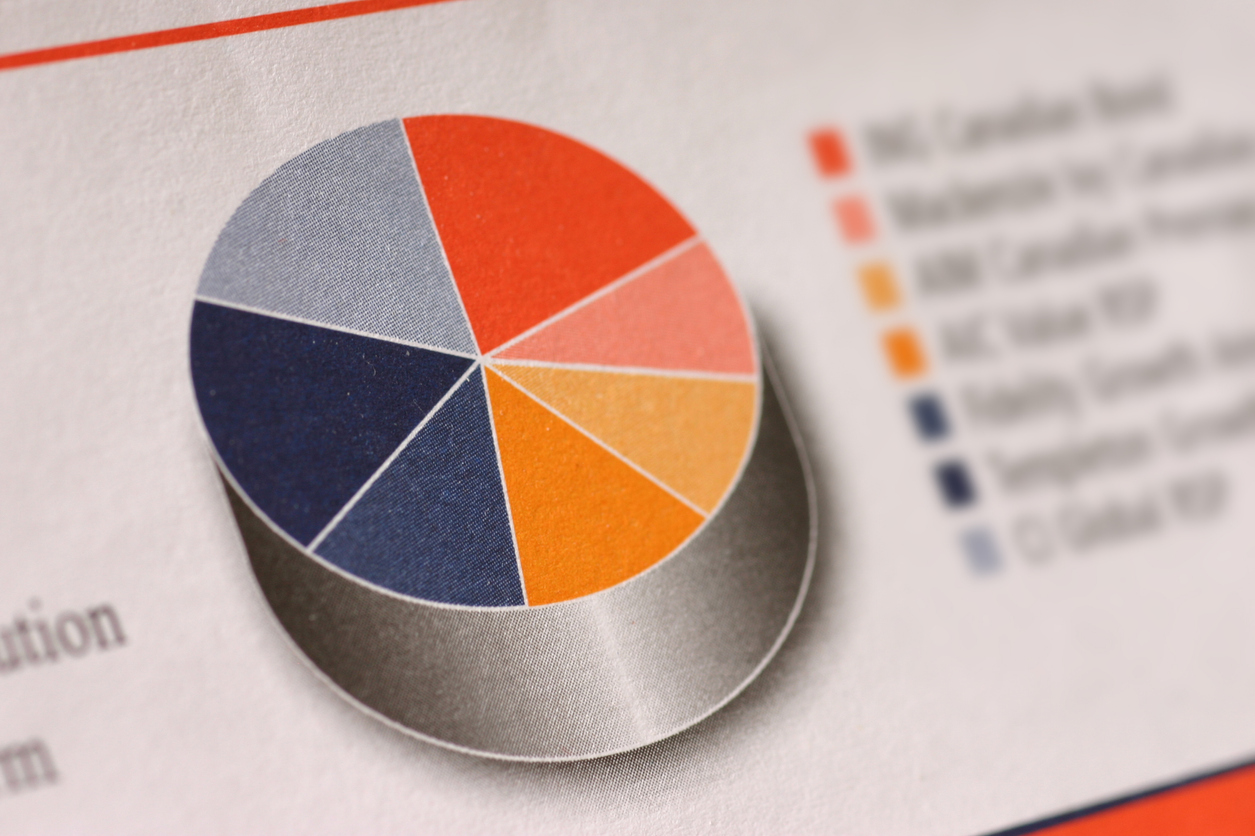
Navigating Your Annual Tax Journey
Dear Reader
Summertime means the 2020 tax filing season is firmly in the rearview mirror for millions of Americans! This year, summer also means more money for you thanks to the child tax credit advance payments. Find out what you need to know about these payments in this month’s newsletter.
Also read about how to maximize your vehicle expense deduction if you’re a business owner, what to do if you receive a notice from the IRS, and a friendly reminder regarding taxes and Mutual Funds.
Finally, with the end of 2021 in sight, now is the time for Tax Planning and making sure that you took advantage of all recent legislation and stimulus fund availability. With the extended due dates for tax returns of September 15th and October 15th rapidly approaching, this is the perfect time to think about tax planning.
Find out how tax planning with Moskowitz LLP can save you thousands of dollars on next year’s tax bill.
Please call if you would like to discuss how this information could impact your situation. If you know someone who could benefit from this newsletter, feel free to send it to them.
Upcoming Dates
Septmeber 6
- Labor Day
September 15
- Filing deadline for 2020 calendar-year S corporation and partnership tax returns on extension.
- 3rd quarter installment of 2021 estimated income tax is due for individuals, calendar-year corporations and calendar-year trusts & estates.
In This Issue
- Upcoming Webinar: IRS Enforcement Policies of ‘Operation Hidden Treasure’
- Get Your Child Tax Credit Payments Now!
- Make the Most of Your Vehicle Expense Deduction
- Help! I Just Got a Letter From the IRS
- Mutual Fund Tips and Tricks
- Real Estate E-Book Download: Offsetting Ordinary Income With Rental Property Loss

Upcoming Webinar: IRS Enforcement Policies of ‘Operation Hidden Treasure’ Thursday August 26, at 12pm PST
This is a webinar for anyone who has cryptocurrency transactions or mining operations. We will update you on recent IRS initiatives to identify Unreported Crypto transactions, how to handle IRS Tax Audits involving cryptocurrency, tax minimizing techniques to consider, and other tax planning opportunities.
This webinar will walk you through how the IRS approaches taxation when it comes to crypto, explain what constitutes a taxable event and provide tangible examples to guide you. It also touches on some emerging issues in the space including how to account for staking rewards, interest earned from lending activities, and even NFTs!

Get Your Child Tax Credit Payments Now!
The first advance payment from the newly expanded child tax credit was recently sent out by the IRS. Payments are scheduled to be made on the 15th of each month through December.
Here’s what you need to know about the child tax credit and the advance payments.
Background
For the 2021 tax year, an expanded child tax credit reduces your tax bill by $3,600 if you have a qualifying child that’s age 5 or under, or by $3,000 if you have a qualifying child from age 6 to 17.
If the total amount of the child tax credit for your family exceeds the total taxes you owe, you’ll receive the amount of the credit as a refund.
Child tax credit advance payments
Instead of waiting to file your tax return to receive the entire amount of your child tax credit, the IRS is directed by Congress to send 50% of the credit to you in six monthly payments beginning in July 2021.
For example, say you have three kids, ages 10, 12 and 16. Also assume your income is not too high and your children meet the IRS definition of a qualifying child. Instead of waiting until 2022 when you file your 2021 tax return to receive the entire $9,000 child tax credit, you can get paid half of the child tax credit amount, or $4,500, in 2021.
The advance payments began July 15 and continue for six months until December 15. The family in this example would receive six payments of $750 starting July 15, for a total of $4,500.
What you need to know
Let’s focus on three basic areas of priority for child tax credit payments.
The monthly payments are automatic
You’ll automatically receive advance payments if:
- You filed a 2019 or 2020 tax return and claimed the credit, OR
- You gave information in 2020 to receive the Economic Impact Payment using the IRS non-filer tool, AND
- The IRS thinks you are eligible, AND
- You did not opt-out of the early payments.
Register with the IRS.
If you didn’t file a 2019 or 2020 tax return but are otherwise eligible for the child tax credit, you’ll need to register with the IRS to receive the child tax credit. Click here to visit the IRS website to find out if you need to register.
Do not assume that you do not qualify. Schedule a brief call with us today and we can help you determine your eligibility.
Consider if you should opt out of the advance payments.
Getting half of your child tax credit ahead of time may not be the right move for everyone. For example, if your 2021 income ends up higher than expected, you may need to pay back the advance payments when you file your tax return. To opt out, to visit the IRS’s child tax credit update portal.

Make the Most of Your Vehicle Expense Deduction
Tracking your miles whenever you drive somewhere for your business can get pretty tedious, but remember that properly tracking your vehicle expenses and miles driven can lead to a significant reduction in your taxes.
Here are some tips to make the most of your vehicle expense deduction.
- Keep track of both mileage and actual expenses.
The IRS generally lets you use one of two different methods to track vehicle expenses – the standard mileage rate method or the actual expense method. One year the mileage method may result in a higher deduction, while the actual expense method may be higher in a subsequent year. But you won’t know which method results in a higher deduction unless you track both your mileage and actual expenses. - Consider using standard mileage the first year a vehicle is in service.
If you use standard mileage the first year your car is placed in service, you can then choose which expense tracking method to use in subsequent years. If you initially use the actual expense method the first year your car is placed in service, you’re locked in to using actual expenses for the duration of using that car in your business. For a car you lease, you must use the standard mileage rate method for the entire lease period (including renewals) if you choose the standard mileage rate the first year. - Don’t forget about depreciation!
Depreciation can significantly increase your deduction if you use the actual expense method. For heavy SUVs, trucks, and vans with a manufacturer’s gross vehicle weight rating above 6,000 pounds, 100% bonus depreciation is available through the end of the 2022 tax year if the vehicle is used more than 50% for business purposes. Regular depreciation is available for vehicles under 6,000 pounds with annual limits applied. - Don’t slack on recordkeeping.
The IRS mandates that you track your vehicle expenses as they happen (this is called contemporaneous recordkeeping). You’re not allowed to wait until right before filing your tax return to compile all the necessary information needed to claim a vehicle deduction. Whether it’s a physical notebook you stick in your glove compartment or a mobile phone app, pick a method to track your mileage and actual expenses that’s most convenient for you.
Please call if you have any questions about maximizing your business’s vehicle expense deduction.

Help! I Just Got a Letter From the IRS
While summertime means that tax filing season is behind you, this is also the season when the IRS sends letters to unlucky taxpayers demanding more money!
If you receive a notice from the IRS, do not automatically assume it is correct and submit payment to make it go away. Because of all the recent tax law changes and so little time to implement the changes, the IRS can be wrong more often than you think. These IRS letters, called correspondent audits, need to be taken seriously, but not without undergoing a solid review.
Here’s what you need to do if you receive one.
- Stay calm.
Don’t overreact to getting a letter from the IRS. This is easier said than done, but remember that the IRS sends out millions of these correspondence audits each year. The vast majority of them correct simple oversights or common filing errors. - Open the envelope!
You would be surprised how often taxpayers are so stressed by receiving a letter from the IRS that they cannot bear to open the envelope. If you fall into this category, try to remember that the first step in making the problem go away is to open the correspondence. - Conduct a careful review.
Review the letter. Understand exactly what the IRS is explaining that needs to be changed and determine whether or not you agree with their findings. The IRS rarely sends correspondence to correct an oversight in your favor, but sometimes it happens. - Don’t assume it will go away.
Until receiving definitive confirmation that the problem has been resolved, you need to assume the IRS still thinks you owe them money. If no correspondence confirming the correction is received, you should follow-up with another written confirmation request to the IRS. - Get help.
You are not alone. Getting assistance from someone who deals with this all the time makes the process go much smoother. And remember, some of these letters could be scams from someone impersonating the IRS!
Please call if you either need help preparing for an upcoming IRS audit or would like to know how to audit-proof your financial records.
As always, should you have any questions or concerns regarding your tax situation, please feel free to call.

Mutual Fund Tips and Tricks
Mutual funds benefit from the long-standing belief that they allow investors to diversify their holdings without buying individual stocks. But to the unwary investor, tax surprises abound.
From a tax planning viewpoint, here are some great mutual fund tips. Most of these tips assume your mutual fund investment is not in a retirement account like a 401(k) or traditional IRA, unless otherwise noted.
- Recordkeeping is important.
Keep good records of every transaction. While brokers are now required to report your cost basis to the IRS, the information they provide may be in error. It’s best to develop a digital or paper filing system to confirm the accuracy of what your broker is reporting. - The IRS wants your cost basis.
Know what each share of your mutual fund costs you. This basis includes any costs related to the transaction like brokerage fees. It can get pretty complicated as your mutual fund buys and sells shares in underlying individual equities that make up the mutual fund. It is even more complex if your mutual fund automatically reinvests any dividends. - Transfers could cause a tax event.
Ask your broker or agent if there will be a capital gain if you transfer mutual fund shares from one account to another. What appears to be a transfer may actually be a sale of shares in one fund and a purchase of shares in another. This can create a taxable event if not handled properly. - Long-term gains create a potential tax benefit.
Whenever possible, time your sales to avoid short-term capital gains (assets that are held less than one year). Short-term capital gains are taxed as ordinary income, whereas long-term capital gains often have a lower tax rate. - Time your sales to account for dividend distributions.
Time your sales to account for dividend distributions.
If you’ve owned appreciated mutual fund shares for more than 12 months and want to sell, find out when your fund distributes dividends. Dividend tax rates could apply and may be very high. Selling before the dividend payout may keep all your earnings as long-term capital gains. - Dividend distributions can impact the fund’s value.
Similarly, if you’ve had your eye on a particular fund, understand the historic payout of dividends. The cost of the mutual fund might be artificially higher right before a dividend payout. To make matters worse, you may even get a dividend distribution that is taxed at higher ordinary income tax rates for gains that occurred before you purchased the mutual fund. - Take advantage of tax-deferred investments.
Maximize your contributions to tax-deferred plans, especially those with matching contributions from your employer. - Plan withdrawals from retirement accounts to be tax-efficient.
Remember withdrawals from mutual funds within retirement accounts like 401(k)s and traditional IRAs are taxed as ordinary income. Because of this you should plan for your withdrawals to be as tax-efficient as possible. - Charitable gifts of mutual funds has a tax benefit.
As with individual stocks, consider donating appreciated mutual fund shares instead of cash. Tax laws allow you to deduct the full market value of the higher share price without having to claim a taxable gain on the appreciation of the share value. - Look at mutual fund costs.
Disclosure rules require fund managers to adequately display the costs associated with each mutual fund. All things being equal, consider these operating costs when deciding between similarly performing mutual funds in a category.
